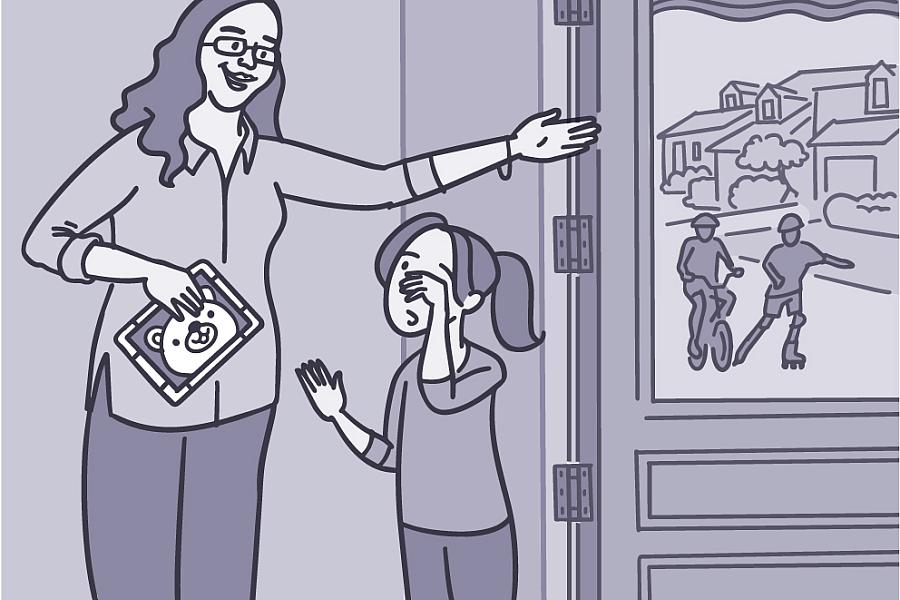Feeling Fatigued?
Finding Possible Causes

Exhaustion seems to be on the rise. Fatigue is one of the symptoms most often reported by people with COVID-19, and their tiredness can linger. Add this to the many other causes of fatigue that existed before the pandemic—such as lack of sleep, mental health concerns, and health conditions like A condition caused by low levels of red blood cells or hemoglobin in the blood. It can cause fatigue, dizziness, and headaches. anemia or heart disease. Overall, it seems, we are one weary nation.
Fatigue can be helpful. It can be a warning sign that you need to ease up after strenuous exercise. Or it can make you rest if you get sick. But more often, fatigue creates problems. It can be an overwhelming and lasting feeling of exhaustion that makes it hard to do everyday tasks.
“There are different aspects of fatigue. It’s generally agreed that the sensation of fatigue can involve difficulty in starting or continuing an activity,” says Dr. Vicky Whittemore, who is involved in NIH’s fatigue-related research programs. “It can involve the perception that the effort to perform an activity is more than should be needed.”
Fatigue itself is not a disease. Rather, it’s a symptom. It can be caused by viral infections, certain medications, unhealthy eating, cancer and its treatments, depression or anxiety, and more.
Because it has so many possible causes, it can be hard for doctors to diagnose the origins of someone’s fatigue. This can make it difficult to develop an effective treatment plan. But your doctor can help you figure out where to start.
Making lifestyle changes can provide some people with relief (see the Wise Choices box for ideas). But these changes may not be enough for everyone. Certain health conditions can contribute to exhaustion. Some are treatable, such as a vitamin or mineral deficiency. But not much is known about other causes of fatigue.
One cause of debilitating fatigue is a serious disease called myalgic encephalomyelitis/chronic fatigue syndrome (ME/CFS). ME/CFS causes long-lasting, severe exhaustion, along with flu-like symptoms (called post-exertional malaise). People with ME/CFS may also have sleep problems, pain, or “brain fog.” Brain fog is when you have trouble thinking or concentrating. Physical or mental activity can make ME/CFS symptoms worse.
Researchers have not yet found an effective way to diagnose or treat ME/CFS. However, its symptoms overlap with those seen in people with Long COVID. Long COVID arises when COVID-19 symptoms last weeks or months after infection. Experts estimate that around 20% of individuals with Long COVID will also be diagnosed with ME/CFS.
These similarities create new opportunities for scientists to uncover the biology behind fatigue. So, NIH is bringing together researchers from different fields and is providing new funding to help scientists tackle the mysteries of these and other forms of fatigue.
“The study of Long COVID is bringing light to many issues that the ME/CFS community has been exploring for years,” Whittemore says. “I think this research will help us better understand fatigue and get at the underlying mechanisms.”
NIH Office of Communications and Public Liaison
Building 31, Room 5B52
Bethesda, MD 20892-2094
nihnewsinhealth@od.nih.gov
Tel: 301-451-8224
Editor:
Harrison Wein, Ph.D.
Managing Editor:
Tianna Hicklin, Ph.D.
Illustrator:
Alan Defibaugh
Attention Editors: Reprint our articles and illustrations in your own publication. Our material is not copyrighted. Please acknowledge NIH News in Health as the source and send us a copy.
For more consumer health news and information, visit health.nih.gov.
For wellness toolkits, visit www.nih.gov/wellnesstoolkits.




